BOC-D-4-Trifluoromethylphe
- CAS NO.:82317-83-7
- Empirical Formula: C15H18F3NO4
- Molecular Weight: 333.3
- MDL number: MFCD00797557
- SAFETY DATA SHEET (SDS)
- Update Date: 2022-12-30 16:20:48
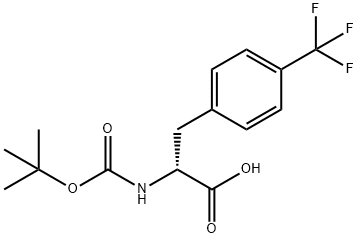
What is BOC-D-4-Trifluoromethylphe ?
Chemical properties
White powder
Properties of BOC-D-4-Trifluoromethylphe
| Melting point: | 135-140°C |
| Boiling point: | 431.4±45.0 °C(Predicted) |
| Density | 1.271±0.06 g/cm3(Predicted) |
| storage temp. | Sealed in dry,2-8°C |
| pka | 3.76±0.10(Predicted) |
Safety information for BOC-D-4-Trifluoromethylphe
Computed Descriptors for BOC-D-4-Trifluoromethylphe
New Products
Tert-butyl bis(2-chloroethyl)carbamate (S)-3-Aminobutanenitrile hydrochloride N-Boc-D-alaninol N-BOC-D/L-ALANINOL N-octanoyl benzotriazole 4-Hydrazinobenzoic acid 3,4-Dibenzyloxybenzaldehyde Electrolytic Iron Powder 1,1’-CARBONYLDIIMIDAZOLE R-2-BENZYLOXY PROPIONIC ACID 4-HYDROXY BENZYL ALCOHOL 1,1’-CARBONYLDI (1,2-4 TRIAZOLE) S-2-CHLORO PROPIONIC ACID (2-Hydroxyphenyl)acetonitrile 4-Bromopyrazole 5-BROMO-2CYANO PYRIDINE 5,6-Dimethoxyindanone 5-broMo-2-chloro-N-cyclopentylpyriMidin-4-aMine 3-(Hydroxymethyl)benzoate N-Boc-2-chloroethylamine 1-Bromo-2-methoxy-3-nitrobenzene N-Methyl-3-cyclopenten-1-amine 2-Bromo-3-hydroxybenzaldehyde 1H-indazole-5-carboxamideRelated products of tetrahydrofuran
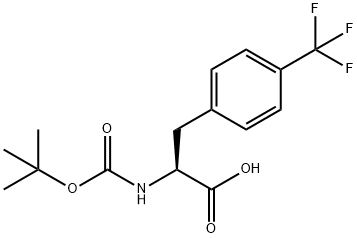
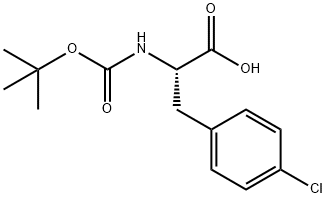
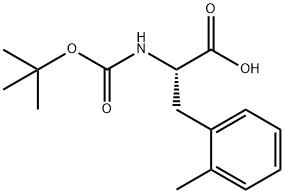
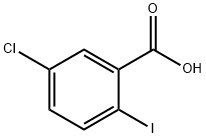

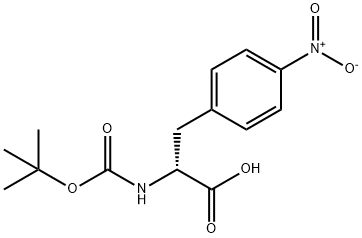
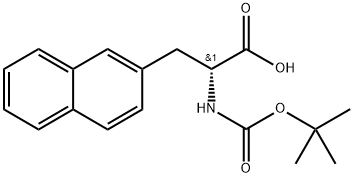

You may like
-
 Boc-4-(trifluoromethyl)-D-phenylalanine 97% CAS 82317-83-7View Details
Boc-4-(trifluoromethyl)-D-phenylalanine 97% CAS 82317-83-7View Details
82317-83-7 -
 7441-43-2 98%View Details
7441-43-2 98%View Details
7441-43-2 -
 1260741-78-3 6-Bromo-3-iodo-1-methyl-1H-indazole 98%View Details
1260741-78-3 6-Bromo-3-iodo-1-methyl-1H-indazole 98%View Details
1260741-78-3 -
 4-bromo-3,5-dimethylbenzenesulfonyl chloride 1581266-79-6 98%View Details
4-bromo-3,5-dimethylbenzenesulfonyl chloride 1581266-79-6 98%View Details
1581266-79-6 -
 2490430-37-8 98%View Details
2490430-37-8 98%View Details
2490430-37-8 -
 N-(5-Amino-2-methylphenyl)acetamide 5434-30-0 98%View Details
N-(5-Amino-2-methylphenyl)acetamide 5434-30-0 98%View Details
5434-30-0 -
 124371-59-1 98%View Details
124371-59-1 98%View Details
124371-59-1 -
 53857-52-2 98%View Details
53857-52-2 98%View Details
53857-52-2
Statement: All products displayed on this website are only used for non medical purposes such as industrial applications or scientific research, and cannot be used for clinical diagnosis or treatment of humans or animals. They are not medicinal or edible.